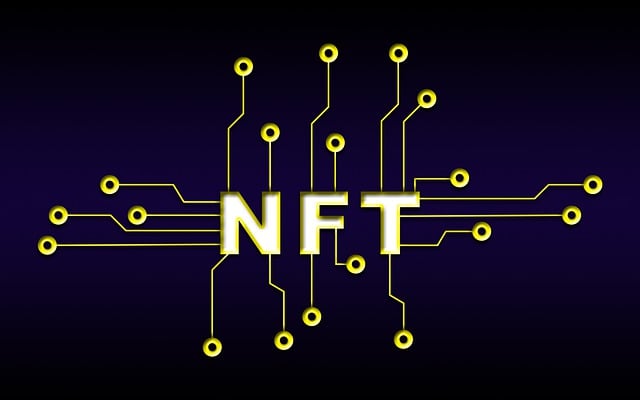The global financial system has undergone a major shift due to the rise of cryptocurrency, with South Africa actively engaging in the regulation of Crypto Assets Taxation. The country's Revenue Service (SARS) has issued guidelines treating cryptocurrencies as property for tax purposes, particularly targeting capital gains from crypto transactions. While progressive, South Africa's regulatory environment is complex, offering comprehensive rules that vary based on income types. This creates a delicate balance between fair revenue collection and fostering innovation in the cryptocurrency market. Uncertainty persists due to the volatile nature of crypto markets, with investors needing clear guidance for compliance. Despite challenges, international collaboration among regulatory bodies offers hope for standardized guidelines, enabling South Africa to enhance its legal framework and keep pace with technological advancements in Crypto Assets Taxation.
“Unraveling the complex landscape of Crypto Assets Taxation in South Africa, this article offers a comprehensive comparison with global tax norms. With the meteoric rise of cryptocurrencies worldwide, understanding local regulatory frameworks is paramount for investors. We delve into South Africa’s unique approach to cryptocurrency taxation, analyze international best practices, and explore the tax implications for domestic investors. Furthermore, we scrutinize challenges faced and predict future trends in crypto taxation within the country.”
- Understanding Crypto Assets and Their Global Rise
- South Africa's Approach to Cryptocurrency Taxation
- International Tax Laws and Crypto: A Comparative Analysis
- Tax Implications for Investors in South Africa
- Challenges and Future Outlook for Crypto Taxation in SA
Understanding Crypto Assets and Their Global Rise

The global financial landscape has undergone a profound transformation with the advent and rapid rise of crypto assets. These digital or virtual currencies, like Bitcoin and Ethereum, have gained significant traction over the past decade. The decentralized nature of blockchain technology, which underpins these assets, offers users unprecedented control over their funds without the need for intermediaries like banks. This revolutionary concept has sparked interest worldwide, leading to a surge in investment and adoption.
As crypto assets cross borders with ease, tax authorities globally are grappling with how to incorporate them into existing tax systems. In South Africa, Crypto Assets Taxation is a topic of growing importance. The country’s revenue service has been proactive in issuing guidelines to ensure compliance, but the regulatory environment remains dynamic as both domestic and international laws evolve to keep pace with this disruptive financial trend.
South Africa's Approach to Cryptocurrency Taxation

South Africa has been relatively proactive in its approach to crypto assets taxation, recognizing the need to bring digital currencies into the tax net. The country’s Revenue Service (SARS) has issued guidelines and notices to clarify the taxation of cryptocurrencies, including Bitcoin, Ethereum, and stablecoins. South African residents who hold, trade, or mine cryptocurrency are subject to capital gains tax on any profit made from these activities.
The SARS treats crypto assets as property for tax purposes, aligning with global trends in crypto taxation. However, it also acknowledges the unique challenges posed by cryptocurrencies, such as their decentralized nature and lack of regulatory clarity worldwide. As a result, South Africa’s tax authorities have implemented measures to monitor and track crypto transactions, including the requirement for cryptocurrency exchanges to report user activity to the SARS.
International Tax Laws and Crypto: A Comparative Analysis

The global landscape of cryptocurrency taxation is a complex web, with each country adopting its own approach to regulating and taxing crypto assets. When comparing international tax laws, South Africa’s position on Crypto Assets Taxation stands out as both progressive and challenging. Unlike some jurisdictions that have yet to establish clear guidelines, South Africa has taken steps to integrate cryptocurrencies into its tax system. This is evident in the Country’s treatment of crypto as a taxable asset, similar to traditional investments.
However, the comparison reveals nuances; some countries offer more favorable conditions for crypto investors and traders, with lower tax rates or specific exemptions. For instance, certain US states and European nations have established clear tax frameworks, including defining criteria for crypto gains and losses. In contrast, South Africa’s approach is comprehensive but can be complex, requiring individuals to navigate a series of rules based on income types, such as capital gains or trading profits. This comparison highlights the need for Crypto Assets Taxation in South Africa to strike a balance between fostering innovation and providing clarity for investors while ensuring fair revenue collection.
Tax Implications for Investors in South Africa

In South Africa, crypto assets taxation is still a relatively new and evolving landscape. Investors in this space face unique tax implications stemming from the global nature of cryptocurrency markets and the lack of clear regulatory guidance within the country. As crypto asset values fluctuate dramatically, investors must navigate complex tax rules that consider both short-term and long-term capital gains. The South African Revenue Service (SARS) has been active in issuing statements and guidelines to clarify certain aspects of crypto taxation, but much remains uncertain.
Investors are generally required to pay taxes on any profits made from the disposal of crypto assets. This includes capital gains tax (CGT), which is applied based on the difference between the purchase price and the sale price. The SARS treats crypto assets as a form of property, subjecting them to CGT rules. Additionally, income generated from crypto activities, such as staking or mining, may be considered taxable income under South African tax laws. Investors must keep detailed records and carefully consider their tax obligations to ensure compliance with these evolving regulations.
Challenges and Future Outlook for Crypto Taxation in SA

Despite its late entry into the crypto space, South Africa has been proactive in establishing a regulatory framework for crypto assets taxation. However, the country still faces several challenges in this relatively uncharted territory. One significant hurdle is the rapid evolution of cryptocurrency technology and markets, which often outpace legislative updates. This creates uncertainty around tax obligations, especially with the diverse range of digital assets and complex global trading networks involved.
Looking ahead, the future outlook for crypto taxation in South Africa seems promising as regulatory bodies worldwide collaborate to develop standardized guidelines. The country can leverage these international efforts to enhance its legal framework, ensuring fairness and efficiency in taxing crypto assets. By keeping pace with technological advancements and global trends, South Africa can establish a robust tax system that supports innovation while protecting the interests of taxpayers and the government alike.















